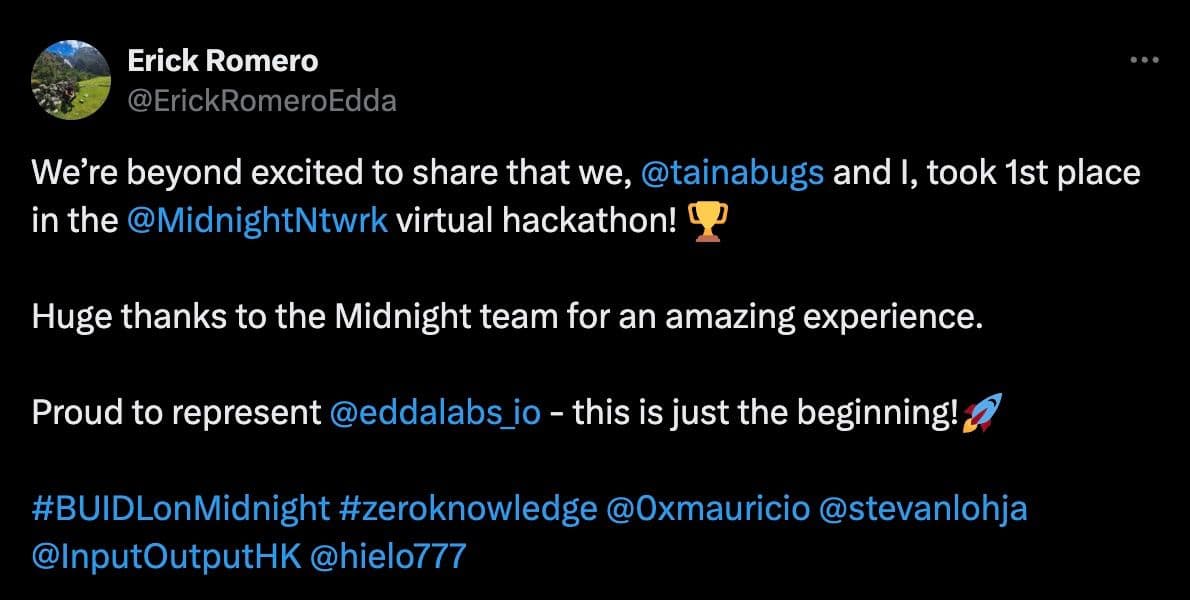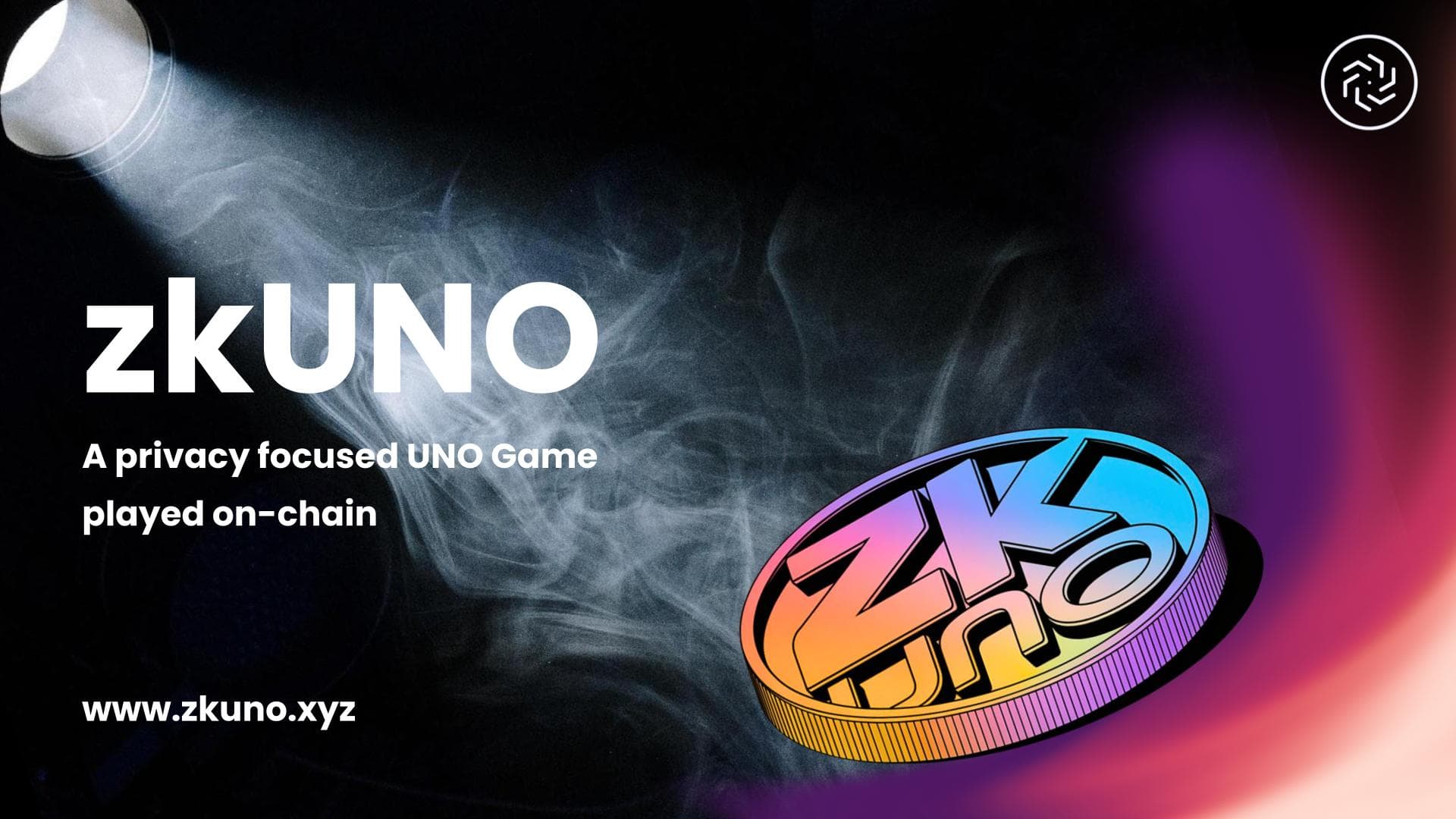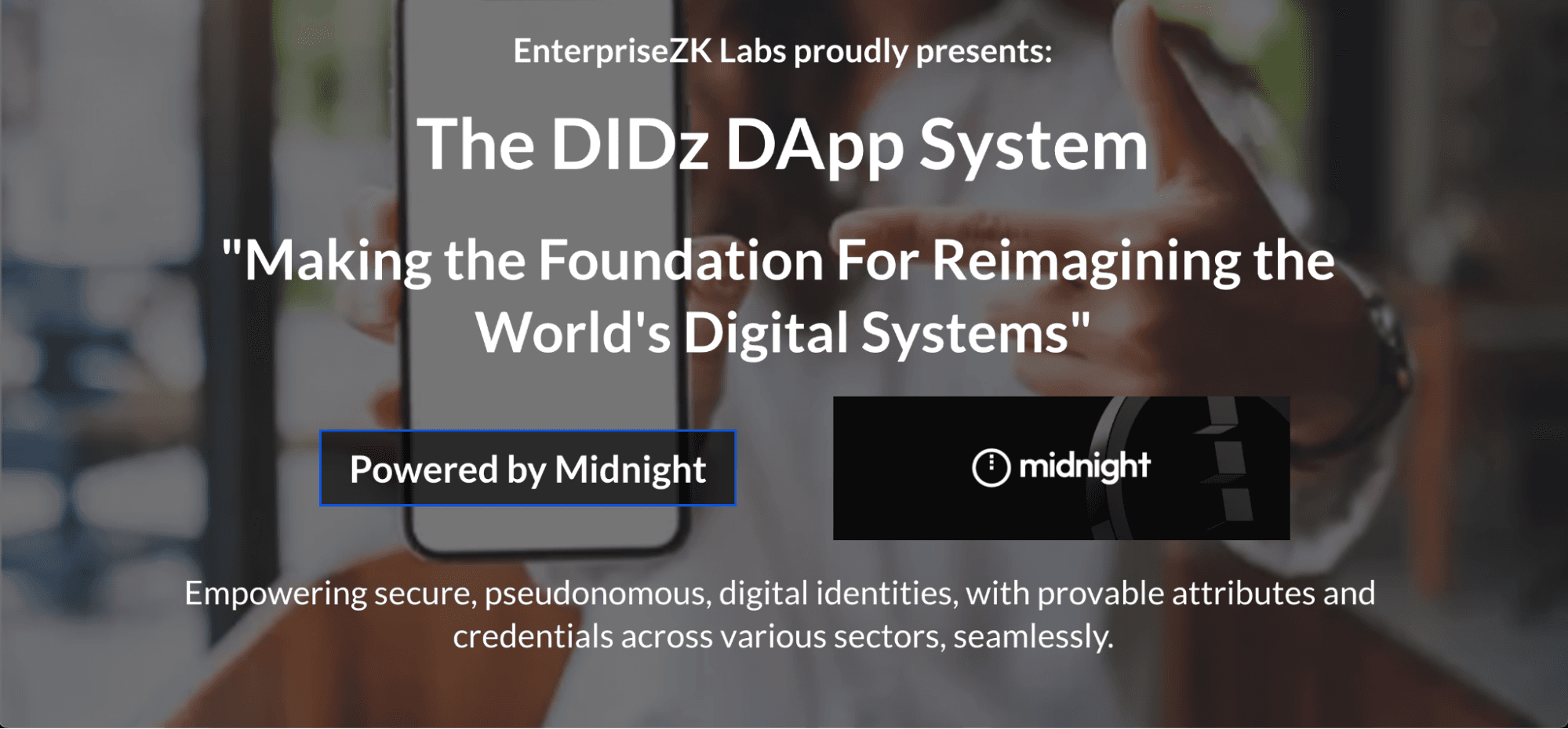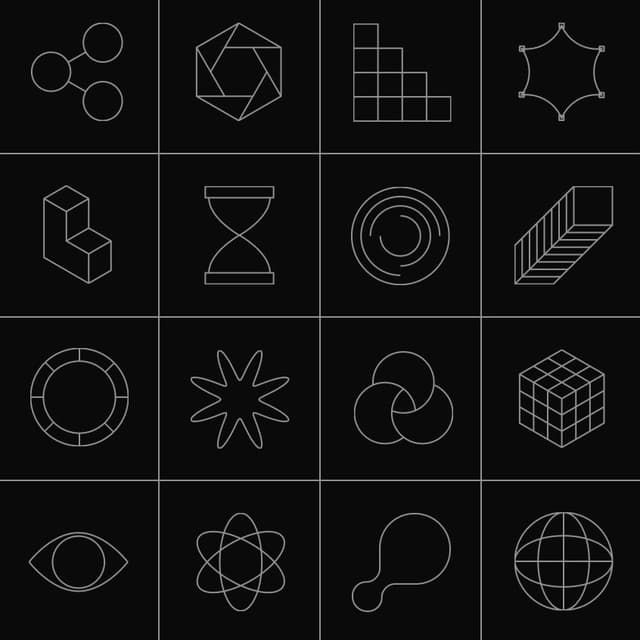Midnight’s first virtual hackathon, which kicked off on August 19th and ran through to September 13th, challenged developers to build decentralized applications (DApps) addressing real-world data protection and security challenges.
Participants were encouraged to create DApps addressing specific use cases or to serve as educational DApps, with extra points awarded for showcasing Midnight's zero-knowledge capabilities or the Compact smart contract programming language.
Entrants were encouraged to attend a series of support calls and a "how to pitch your project" session. Finalists presented their projects on September 13th.
Submissions were assessed by a panel of judges comprising representatives from the product and developer relations teams working on Midnight. Entries were judged on technology, innovation, completion, real-life application and feedback on Midnight’s developer experience.
From a competitive pool of submissions, here are the three winners selected by the judges:
#1: Erick Romero - EDDA
Hailing from Brazil, Erick Romero claimed first place with EDDA, a Q&A platform utilizing zero-knowledge proofs to ensure user anonymity and enforce community guidelines.
EDDA's technical sophistication, polished presentation, and functional demo, coupled with its open-source nature and Next.js integration, set it apart.
On winning the hackathon, Erick posted on his X profile:

#2: Krish Dhar and team - ZKUno game

Krish Dhar and his team secured second place with their well-executed zero-knowledge Uno game, a game that aims to merge the thrill of online Uno with blockchain’s security to “ensure a decentralized and transparent operation, built with ZK proofs”.
Their refined presentation and functional game demonstrated the potential for entertaining and interactive DApps on Midnight.
After the hackathon, in an X post celebrating their achievement, the team claimed that “this is just the beginning”.
#3: John Santi - DIDz identity

John Santi's DIDz Identity, a decentralized identity solution, earned third place. The project's video presentation effectively conveyed a clear vision for real-world applications, highlighting the importance of digital identity management in a privacy-focused blockchain environment.
According to John, his next steps are “to master Midnight, learn as much as [he] can about existing DID infrastructure, gain insights into master developers' aggregate desires for a 'more perfect' DIDz system and wallet, and build a modular, flexible, scalable system for seamlessly and cohesively adding to Midnight at this early stage of building”.
Just the beginning
The first Midnight virtual hackathon showcased the innovative potential of the Midnight network and the enthusiasm and dedication of its highly-engaged community. As Midnight evolves and the community grows, more hackathons, workshops, and technical events will follow – so stay tuned.
To be the first to hear about the next event, join the community on Discord and follow Midnight updates on X and Telegram.

